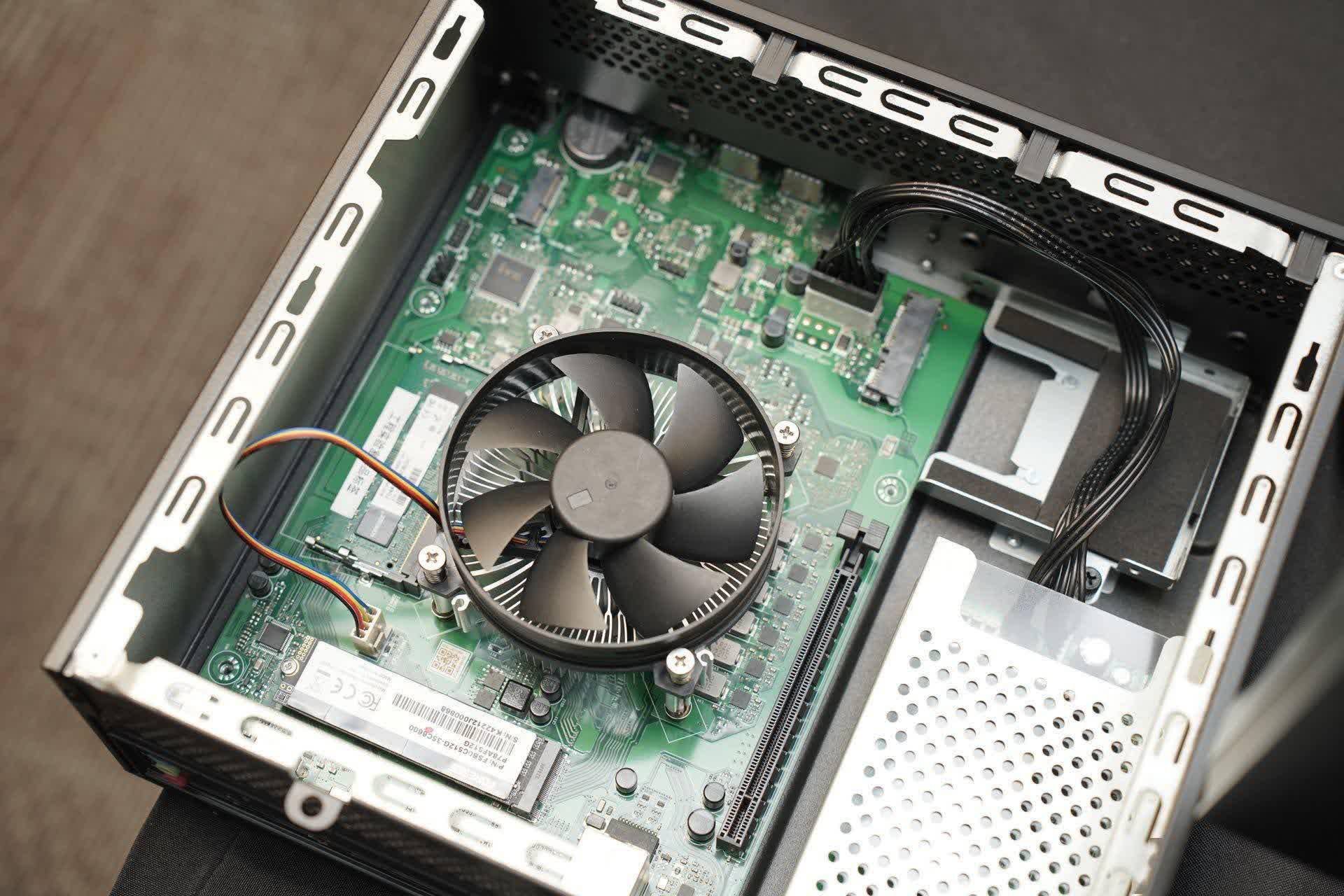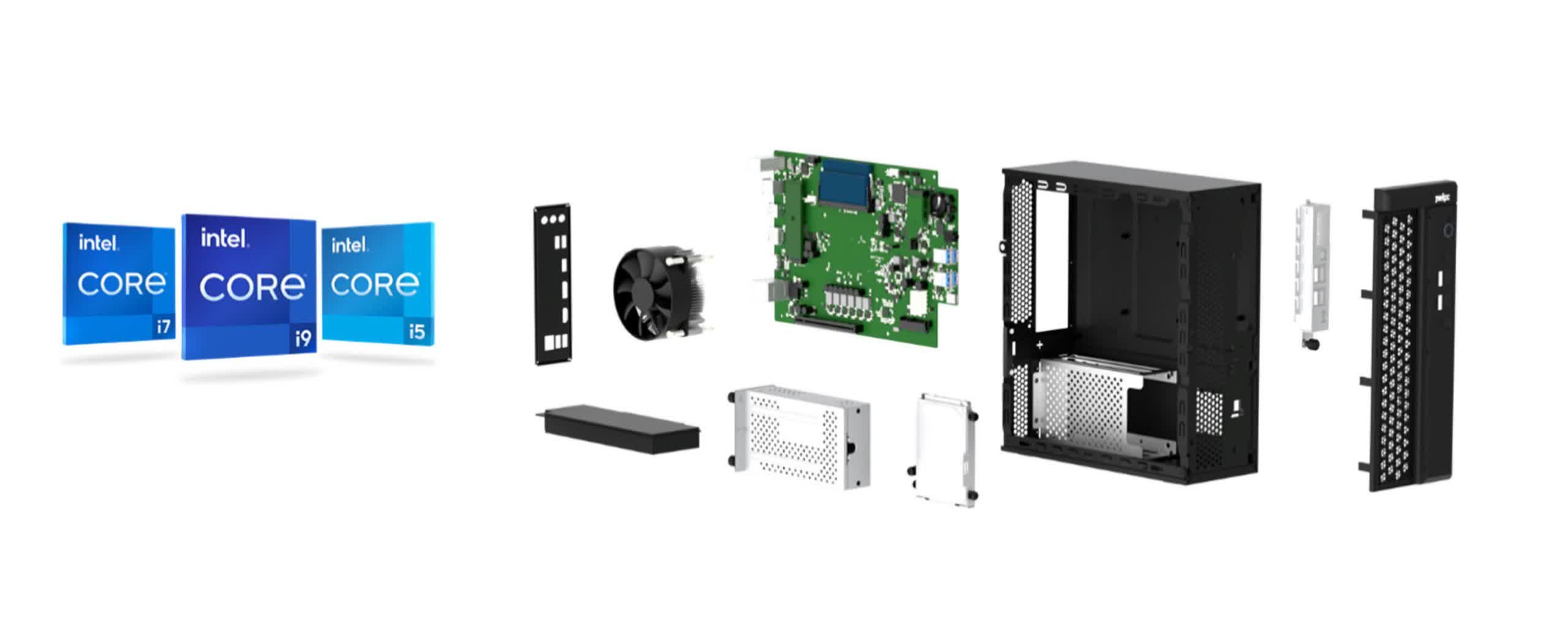Why it matters: Intel's new "green" PC probably won't blaze through high-end games or other processor-intensive tasks, but it could be good for everyday work. More importantly, the company's example might inspire the rest of the industry to lower carbon emissions and environmental impact from production pipelines and power consumption.

Chinese outlet Sohu (via Tom's Hardware) recently reported on Intel's presentation of a "green" PC that the company claims to be 90 percent recyclable. Intel explains how adjustments in materials procurement and energy consumption can reduce carbon emissions from manufacturing and from using the system itself. Intel is primarily a chip company, so it got help from partners like Acer and Tsinghua Tongfang in completing the design.
Intel showcased the PC with an unspecified 12th-gen Alder Lake processor installed, mentioning it could use the company's i5, i7, or i9 CPUs. However, using a modest stock cooler, it would likely only be used for mid-range or low-intensity work. The "Intel Green Computer Software Control Center" software dynamically senses the user's current workload and adjusts the PC's operation accordingly to maximize energy efficiency.
Also read: Sustainable Computing, Explained
The green PC's printed motherboard (PCB) reduced its total number of components by 22 percent, from a typical 1,800 to 1,400, while making power delivery 6 percent more efficient. The high recyclability rate largely comes from the PCB's metal, glass, and organic materials.
Based on the provided low-resolution photo (below), the motherboard appears to feature notebook SO-DIMM memory sockets, one M.S slot, and one PCIe x16 slot. Intel confirms the board is 36 percent smaller than a typical ATX motherboard, but didn't label it with a specific form factor.

The system's Gallium nitride power supply is around 70 percent smaller than a normal ATX PSU with one 12V output and a fanless design. It carries an 80 Plus Titanium certification guaranteeing high efficiency under heavy and light load. Overall, Intel reduced the carbon footprint by 90 percent in this area. Finally, the chassis is just seven liters and uses only four screws.
Such initiatives could provide a good blueprint to contribute to the recent trend toward sustainable computing. Other areas to consider regarding emissions and environmental impact include clamping down on e-waste by making devices as reusable as possible, examining the emissions from manufacturing SSDs, and emissions from the 24/7 operation of servers.
https://www.techspot.com/news/97728-intel-demonstrates-green-pc-90-percent-recyclability.html